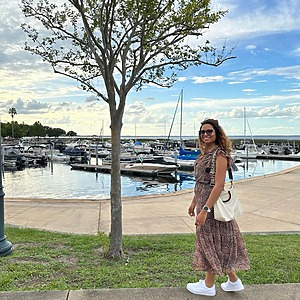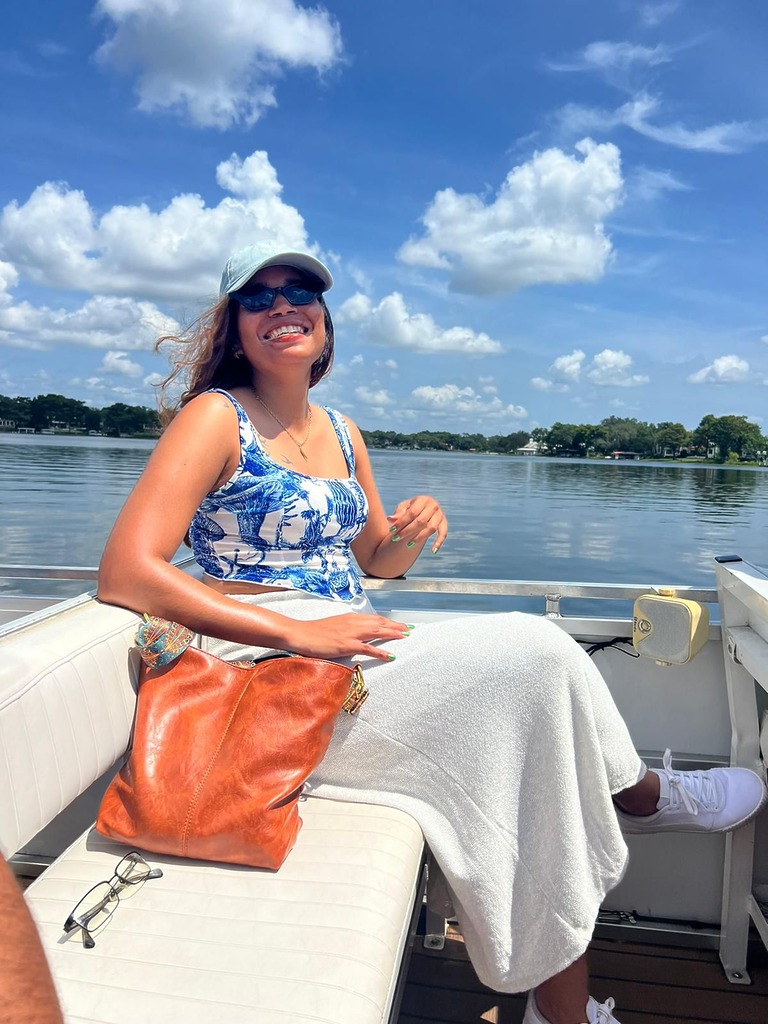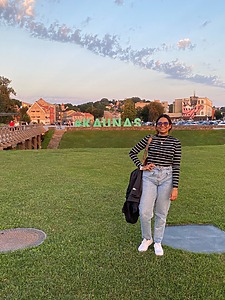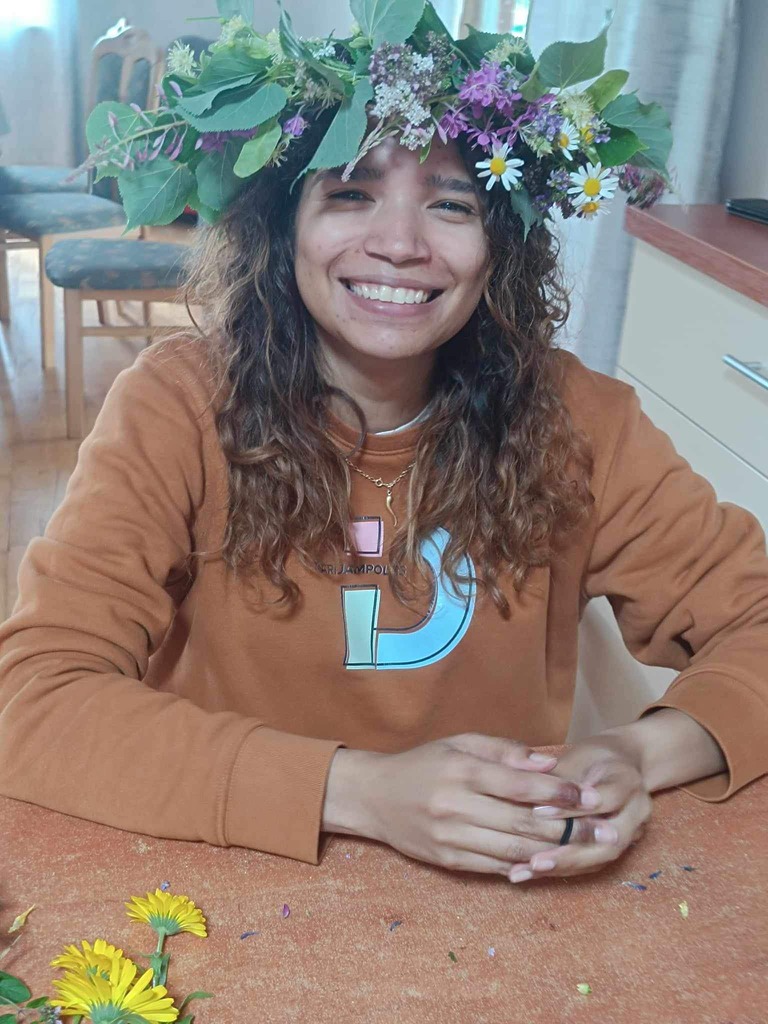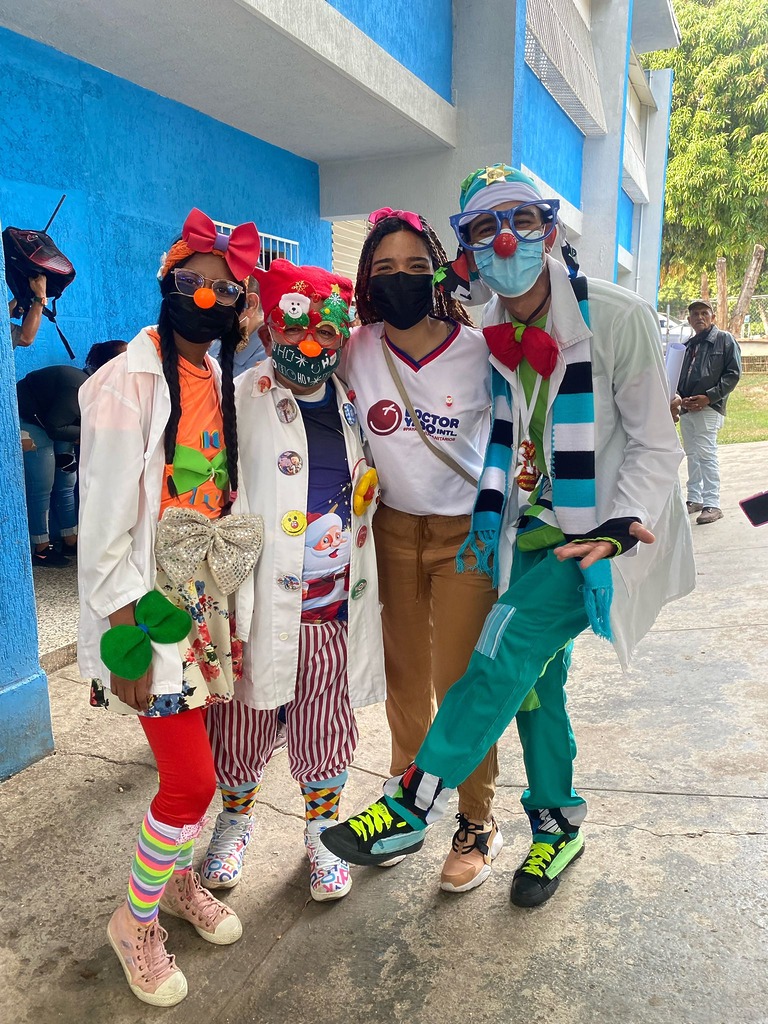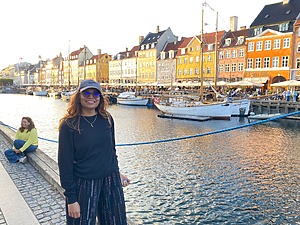When Maria Rosa Rojas Noguera from Venezuela decided to continue her education and study for a master’s degree, she had her heart set on Australia. Still, she unexpectedly found herself thriving in the green landscapes of Lithuania. “I didn’t choose Kaunas. In a sense, I’d say Kaunas chose me,” says Maria. Her journey has been inspiring, from volunteering and teaching in Venezuela to celebrating Užgavėnės and studying in Lithuania. Today Maria encourages others not to give up and dedicates her time to science that solves real-world challenges.
“I used to believe my success was just luck, but now I am learning to recognise it as the result of my own effort,” says Maria, a former physics professor and recipient of the prestigious Marie Sklodowska-Curie Fellowship.
“But at the time, the dream was too big, and the situation in Venezuela was not the best, so going for a master’s abroad just wasn’t possible for me,” recalls Maria.
Race against the time
Years after finishing her studies, she started seriously considering international master’s programmes. Eventually, Maria was accepted into the Medical Physics programme at the Royal Melbourne Institute of Technology (RMIT) in Melbourne, Australia.
“But then the other challenge appeared, so I was like, okay, the first step is done. Now, how am I going to pay for it?” remembers the young specialist.
Although Maria’s family was very supportive, she understood it would not be enough. Maria started to look and apply for scholarships for any financial help she could get.
“I had the scholarship – I just lost the university. So, it was a race against time for me,” remembers Maria.
She needed to find another programme that met the requirements of the funders as soon as possible, and that’s how Maria found out about KTU. “It actually feels like this is the real path I was meant to take,” says Maria.
Surprises came as soon as she landed
Maria’s arrival in Lithuania started with surprises from the moment she landed. “I was heavily jet-lagged, taking a taxi to the train station, carrying three heavy suitcases and my backpack, so lost and tired, and this nice lady saw me struggling with all my stuff, asked another passenger to help me, and sat with me on the ride from Vilnius to Kaunas,” she recalls.
Maria was surprised by this. “I kept hearing that Lithuanians tend to be cold, so I was expecting not very friendly people. I do believe the internet lied to me on this, to be honest,” she adds, grateful for the helpfulness of the locals.
Her first impressions of Kaunas were equally surprising.
I didn’t know Lithuania existed, so I had no idea what to expect. I thought all of Europe was the same, I guess that’s a very American way of thinking on my part.
“I’ll never forget one of my first lectures, where the professor asked about how dorm life was going. It just felt so nice seeing that your lecturers care not only about your academic life but also your adaptation in general.”
Užgavėnės looked like a witchcraft
When Maria Rosa moved to Lithuania, her family was worried about the winter. “There are no seasons in Venezuela as the country is too close to the equator. We have 6 months of rainy season and 6 months of dry season, that’s it. So winter is something we don’t know,” she explains. Prepared for the unknown, Maria arrived with an entire suitcase full of coats.
Yet, it wasn’t just the cold her family worried about. Coming from a vibrant Latino culture, known for its warmth and loudness, her family also feared Lithuania’s reserved culture might make it difficult for Maria to fit in. “My aunt even told me to try laughing more quietly because people here might not like that,” she recalls.
But Maria found their worries unfounded. “Oh, if only they knew. I made friends here easily, we connected during the welcome week and just clicked instantly,” says Maria.
Finding purpose in a developing country
Before moving to Lithuania, Maria taught at the University of Carabobo in Venezuela. Initially, she didn’t think she would enjoy teaching. “I started because I found myself with a degree in sciences in an undeveloped country, and I didn’t want to throw my studies out the window,” she explains. However, teaching quickly became something she loved.
As for her future plans, Maria is considering pursuing a PhD, but firstly, she would like to clearly understand how it would enhance her career opportunities. “While I feel like a scientist at heart, I am not particularly keen on academia. I would love to be a part of the research and development department at some company, and there are a few in Europe that I would be thrilled to work for,” reveals Maria.


